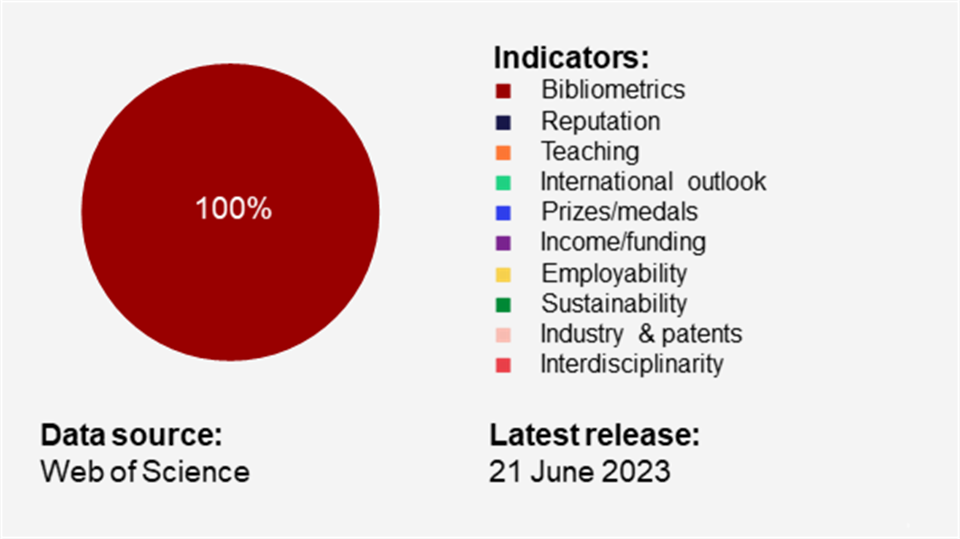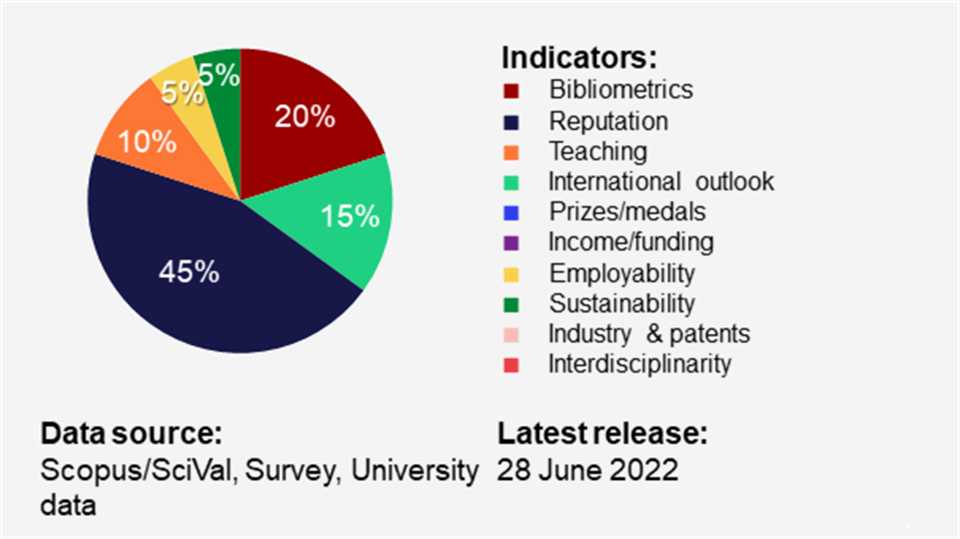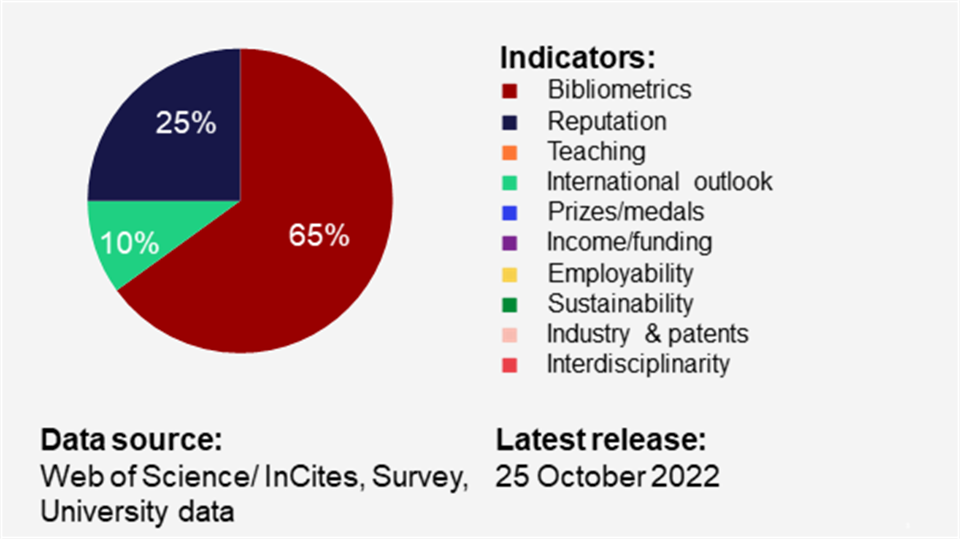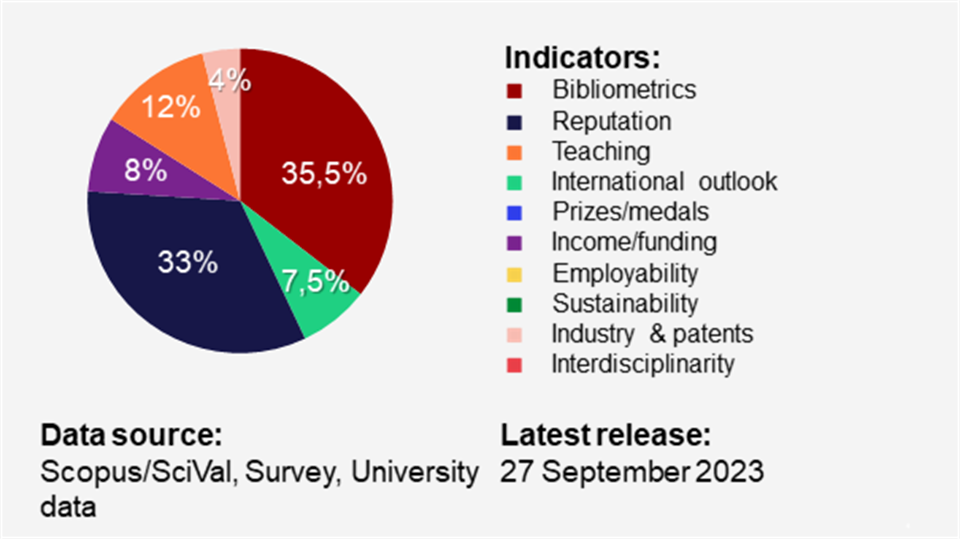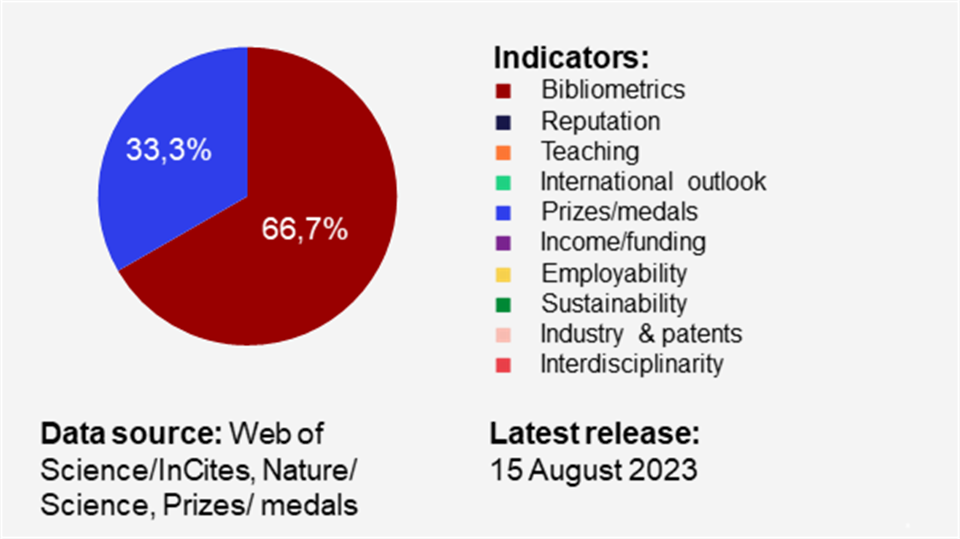Leiden Ranking is produced by a team of researchers at the Centre for Science and Technology Studies (CWTS), Leiden University, Netherlands.
The two indicators:
Impact indicator: Proportion of Publications in Top 10%
The proportion of publications of a university that - compared with similar publications - belong in the top 10% most frequently cited.
Leiden Ranking 2023 - impact top 10%
Under the headline "Indicators", choose:
- Type of indicators: Scientific impact
- Indicators: P, P(top 10%), PP(top 10%)
- Order by: PP(top 10%)
Collaboration indicator: Proportion of Publications with Industry
The proportion of publications of a university that has been co-authored with industry.
Leiden Ranking 2023 - collaboration with industry
Under the headline "Indicators", choose:
- Type of indicators: Collaboration
- Indicators: P, P(industry), PP(industry)
- Order by: PP(industry)
Data is published for the 1,411 largest universities in the world based on the number of Web of Science publications.
